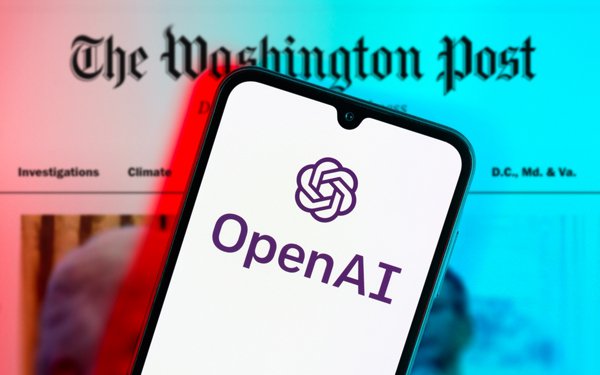
The Washington Post has
formed a strategic partnership with OpenAI to make its news content accessible in ChatGPT.
As part of the agreement, ChatGPT will display summaries, quotes and
links to original reporting from the Post in response to relevant questions, the Post reports.
“We’re all in on meeting
our audiences where they are,” says Peter Elkins-Williams, head of global partnerships at The Washington Post. “Ensuring ChatGPT users have our impactful reporting at
their fingertips builds on our commitment to provide access where, how and when our audiences want it.”
“More than 500 million people use ChatGPT each week to
get answers to all kinds of questions,” adds Varun Shetty, head of media partnerships at OpenAI. “By investing in high-quality journalism by partners like The Washington Post, we’re
helping ensure our users get timely, trustworthy information when they need it.”
advertisement
advertisement
OpenAI has formed arrangements with more than 20 news publishers, bringing its technology to over 160
outlets and hundreds of content brands, the firm says. Among its publishing partners are Guardian Media Group, Dotdash Meredith, Financial Times, The Atlantic, Vox Media, News Corp
and Axel Springer.
The company recently announced it would fund four new Axios newsrooms. Recently, it reached agreements with U.K. publisher Future.
But it has also been sued by
The New York Times and eight Alden Global Capital newspapers for allegedly misappropriating their content. Despite these suits, some see deals like this one with the Post as a
boon for beleaguered publishers.
“The Washington Post's partnership with OpenAI is another clear signal that the future of
journalism is becoming increasingly intertwined with generative AI,” observes Alon Yamin, co-founder and CEO of Copyleaks.” It’s encouraging to see legacy media take a proactive
role in shaping how their content is used and credited in AI tools.”
This type of partnership “sets the tone for more responsible AI adoption, where
transparency, licensing, and content integrity are not afterthoughts but are built in from the start,” Yamin adds.